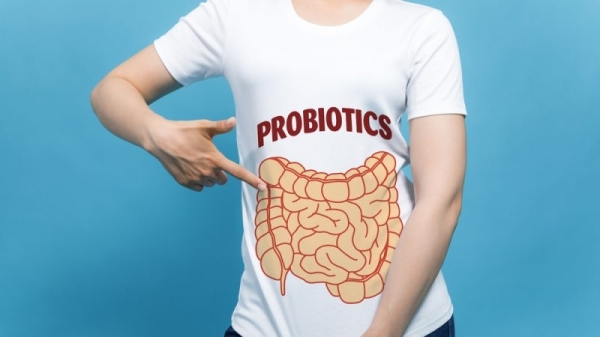End of the probiotics term saga can only be ‘political’, expert says

The current regulatory brain-teaser on the use of the ‘probiotics’ term in the EU can only be solved at the political level with an initiative by the European Commission pushed by lawmakers, according to Italian professor Lorenzo Morelli.
Probiotics cannot be advertised as such on food labels in the EU market as the term is considered a ‘health claim’ and, therefore, may only be made on foods if authorised on a case-by-case basis, following a scientific assessment by the European Food Safety Authority (EFSA).
However, EFSA has not yet delivered a favourable opinion to all applications submitted for authorising the term probiotic as a health claim.
But for Morelli, director of the Department of Food Science and Technology at the Cattolica University in Milan, “EFSA is, in any case, just an advisory body.”
“If the EU policymakers were to intervene with an explanatory note, that would be the end of the matter,” he continued.
Contacted by EURACTIV, an EFSA spokesperson confirmed that the role of the EU agency is to provide scientific advice to EU policymakers
“We’re not responsible for setting rules including authorising the use of nutrition and health claims made on food in the EU market – that’s for the European Commission and EU Member States,” the spokesperson said.

Probiotics sector ferments amid push to tweak outdated EU framework
Latest developments on the ‘probiotics’ term saga suggest that the time is ripe for overcoming the current regulatory framework which, for more than 15 years, has hindered the EU probiotics sector from flourishing as well as restricting consumer information.
The ‘botanicals’ solution
Morelli mentioned another peculiar situation occurring with botanicals and derived preparations made from plants, algae, fungi or lichens when used as food supplements.
There is no such centralised authorisation procedure for these food supplements, but they are typically labelled as natural foods with various claims on possible health benefits.
To address the regulatory vacuum, three member states – Belgium, France, and Italy – unified their lists of health claims on botanicals in the so-called BEL-FR-IT protocol, which was then informally accepted as a reference at the EU level.
“One could even start like this for probiotics too. However, if the European Commission intervened, perhaps under pressure from a few parliamentarians [it would be better],” he said.
The ideal solution for Morelli would be to follow a similar pathway to the one adopted for botanicals and recognise that probiotics, as food supplements, traditionally support a balanced composition of the gut microbiota.
“If you advertise for products containing probiotics specific beneficial characterisations such as help in decreasing constipation, or the irritable bowel syndrome, then it is a health claim that needs approval,” he added.
The Italian way
Since 2018, some EU member states have started adopting national guidelines to face the actual ban on the use of the ‘probiotics’ term for foodstuff. Through the guidelines, these countries have developed certain requirements for qualifying specific strains as probiotics as factual information.
In Italy, for instance, these guidelines rely on the obligation to provide consumers with the reasons behind using a certain food supplement in foodstuff.
The reason for using probiotics is the physiological effect on the balance of intestinal flora – something that is not considered a ‘health claim’ by EFSA in 2009 when the agency evaluated the increasing levels of microflora not carrying in themselves beneficial effects on health.
“If we say that a certain supplement is designed to support balanced intestinal microflora and is, therefore, composed of probiotic bacteria, we are not going against the EU ban on the use of the term probiotic, according to the Italian thinking,” Morelli said.
Although other countries such as Spain and Denmark have followed a similar approach, the solution found by Italy is limited to the national market only, meaning that food producers using probiotics cannot benefit from the free movement of goods across Europe.
Consumer protection
According to Morelli, the rigid position of the EU on the matter is ultimately harming the consumer.
He pointed out that supplements labelled as ‘lactic ferments’ have reappeared in Italian supermarkets, although the term is no longer regulated, these products could have an ineffective dose of live cultures.
With the guidelines on probiotics, the Italian regulator has, on the contrary, established some standards. For instance, food producers “must guarantee the consumer a minimum viable load of 1,000,000 per bacterial strain for shelf life,” the professor said.
The other worrying trend is using the term ‘probiotics’ in cosmetics, shampoos, and detergents, which are not covered by the ‘health claims’ regulation as they are not foodstuff.
“How can anyone think lactic acid bacteria or bifidobacteria cells can survive in a shampoo with surfactants? It’s a scam, but the term probiotic has acquired a good consumer reputation, so it’s used,” he said, adding that in this way, the food industry, which is the sector that has originally invested in these supplements, is ‘betrayed and beaten’.

Food supplements: Policymakers ask for more consumer information, fewer grey areas
The use of food supplements is on the rise in Europe and this has prompted calls from stakeholders and lawmakers to revise the 20-year-old legislation currently in place and make sure it is applied uniformly across the bloc.



